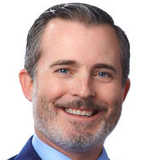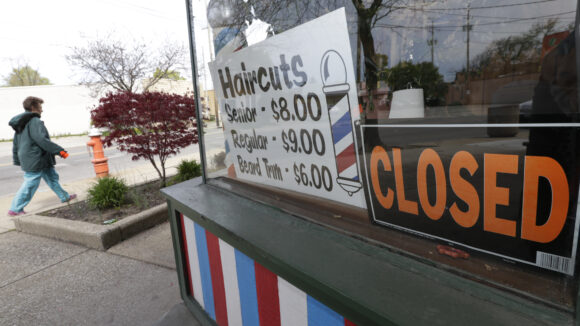Two appellate courts took steps this week toward answering a key question that may seal the fate of some 1,500 lawsuits seeking insurance coverage for COVID-19-related business-interruption losses: Does the presence of the SARS-CoV-2 virus or people infected with it constitute a direct physical loss under a commercial property insurance policy?
A panel of the federal 8th Circuit of Appeals heard oral arguments Wednesday in an appeal filed by a dental surgery practice that challenges a decision by a U.S. District judge in Iowa to dismiss its coverage lawsuit against Cincinnati Insurance Co.
Also on Wednesday, the Ohio Supreme Court voted 4-3 to accept a certified question from the U.S. District Court in Youngstown, Ohio that will help decide whether Cincinnati owes coverage in another case.
The Calfee law firm in Cleveland signaled the importance of the high court accepting the question on Thursday by posting a blog post written by partner K. James Sullivan. He said that “all eyes are trained on Ohio.”

“As I understand it, this is the first supreme court in the United States that has agreed to hear some of the key issues in COVID-19 business-interruption coverage cases,” Sullivan said during a telephone call.
The Claims Journal previously reported that plaintiffs with COVID-related business interruption claims have done better in Ohio than in any other state. A litigation tracker maintained by the University of Pennsylvania’s Carey Law School shows that state and federal courts in Ohio have ruled in favor of policyholders in 12 out of 22 cases so far. Nationally, insurers have won four out of five cases in early rounds.
Neuro-Communications, an audiology practice with offices in Boardman and Youngstown, filed suit after Cincinnati denied its claim for business income lost when the state ordered it to shut down operations because of the coronavirus pandemic. The lawsuit says at least two patients with COVID-19 visited its practice and one of them died of the disease.
U.S. District Judge Benita Y. Pearson did not reach a decision, but granted a motion by the insurer to send a certified question to the Ohio Supreme Court: “Does the general presence in the community, or on surfaces at a premises, of the novel coronavirus known as SARS-CoV—2, constitute direct physical loss or damage to property; or does the presence on a premises of a person infected with COVID-l9 constitute direct physical loss or damage to property at that premises?”
Neuro-Communications opposed the motion, arguing that more time should be allowed to conduct discovery and learn exactly what impact the virus has on property. United Policyholders, Childcare Centers and the Cleveland Building & Construction Trades Council filed amicus briefs arguing against the certified question. State Auto Mutual Insurance Co. filed a brief in support.
Sullivan said, as a policyholder attorney, he would have liked the question to be broader. He said the question before the Supreme Court wasn’t whether government shutdown orders by themselves can constitute a covered loss of use of property.
In the 8th Circuit case, Oral Surgeons P.C. sued after Cincinnati denied its claims for income lost during a state-ordered shutdown from March 23 to May 8. U.S. District Judge Charles R. Wolle in Des Moines granted Cincinnati’s motion to dismiss the case. He said in his order that Oral Surgeons had failed to allege that it had suffered a direct physical loss.
Two justices seemed leery when plaintiff’s attorney Tyler S. Smith made oral arguments for Oral Surgeons on Wednesday in St. Paul, Minnesota. Judge David R. Stras asked Smith if there is any case law that supports his argument that coverage is owed, in part, because Cincinnati used two policy forms to bind coverage — a standard policy form and a second policy that defined terms.
“I have trouble putting much stock in that,” Stras said. “Where is the case that says an ambiguity can be created by looking at other polices the insurer has issued to other insureds? I thought ambiguity always turned on whether the language within the policy, considering all its terms and so forth, have a clear meaning.”
Judge James B. Loken expressed his doubts more directly.
“Oral surgeons lost money, right?” he said. “They lost money. I’m still not finding anything physical that they lost. Money will not suffice as a physical loss in insurance parlance.”
The judges showed no skepticism when Cincinnati’s attorney, David Litchfield, made his arguments. Litchfield said he has a surplus of cases directly on point.
“Frankly I’ve never seen anything like this, that in a year over 100 precedents have developed and the vast majority of those favor Cincinnati’s position here,” Litchfield said.
A ruling by the 8th Circuit may be persuasive, but a federal court can decide only one case. It cannot determine — in broad terms — the meaning of an Iowa state law. Only state supreme courts can determine how state laws should be interpreted.
That is why the Ohio Supreme Court will be closely watched. Sullivan said he expects Ohio to be one of the first states to settle the question of whether the coronavirus can cause a direct physical case, if not the very first. He said he expects the court to accelerate is deliberations and answer the certified question before the end of the year.
“Whether a normal or accelerated timeline, it’s going to be a landmark case,” he said.
About the photo: In this May 6, 2020 file photo, a woman walks past a closed barber shop in Cleveland. (AP Photo/Tony Dejak, File)
Was this article valuable?
Here are more articles you may enjoy.


 Moody’s: LA Wildfires, US Catastrophes Drove Bulk of Global Insured Losses in 2025
Moody’s: LA Wildfires, US Catastrophes Drove Bulk of Global Insured Losses in 2025  Claims Handling Breakdowns From LA Wildfires One Year on
Claims Handling Breakdowns From LA Wildfires One Year on  AIG’s Zaffino: Outcomes From AI Use Went From ‘Aspirational’ to ‘Beyond Expectations’
AIG’s Zaffino: Outcomes From AI Use Went From ‘Aspirational’ to ‘Beyond Expectations’  When the Workplace Is Everywhere: The New Reality of Workers’ Comp Claims
When the Workplace Is Everywhere: The New Reality of Workers’ Comp Claims 